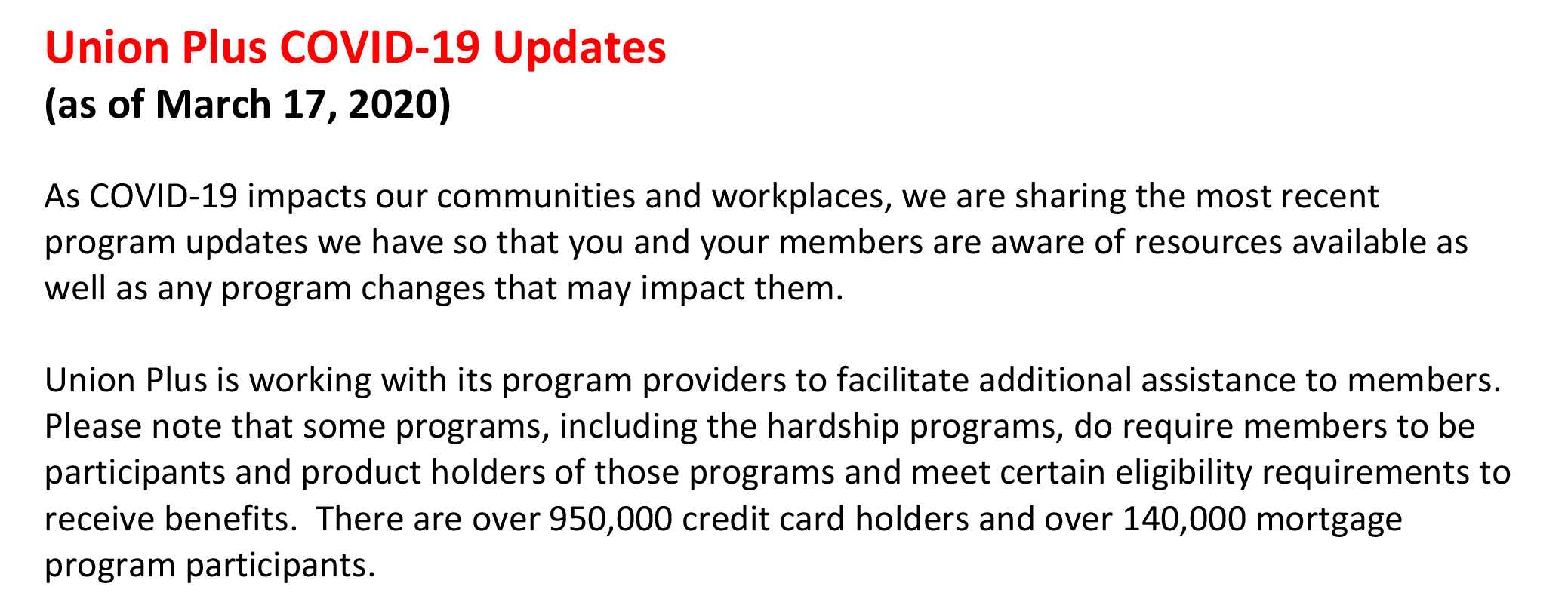CORONA VIRUS STAY SAFEWASH HANDSSOCIAL DISTANCINGUSE COMMON SENSEDON'T TOUCHYOURFACECOVERYOURSNEEZEINFORMATION
Omicron Variant: What You Need to Know
Omicron in the United States
CDC is working with state and local public health officials to monitor the spread of Omicron. As of December 20, 2021, Omicron has been detected in most states and territories and is rapidly increasing the proportion of COVID-19 cases it is causing.
CDC is expecting a surge of COVID-19 cases in the coming days to weeks. Learn more about Omicron variant surveillance and potential rapid spread.
COVID Data TrackerOmicron Potential SpreadWhat We Know about Omicron
CDC has been collaborating with global public health and industry partners to learn about Omicron, as we continue to monitor its course. We don’t yet know how easily it spreads, the severity of illness it causes, or how well available vaccines and medications work against it.
Spread
The Omicron variant likely will spread more easily than the original SARS-CoV-2 virus and how easily Omicron spreads compared to Delta remains unknown. CDC expects that anyone with Omicron infection can spread the virus to others, even if they are vaccinated or don’t have symptoms.
Severe Illness
More data are needed to know if Omicron infections, and especially reinfections and breakthrough infections in people who are fully vaccinated, cause more severe illness or death than infection with other variants.
Vaccines
Current vaccines are expected to protect against severe illness, hospitalizations, and deaths due to infection with the Omicron variant. However, breakthrough infections in people who are fully vaccinated are likely to occur. With other variants, like Delta, vaccines have remained effective at preventing severe illness, hospitalizations, and death. The recent emergence of Omicron further emphasizes the importance of vaccination and boosters.
Treatments
Scientists are working to determine how well existing treatments for COVID-19 work. Based on the changed genetic make-up of Omicron, some treatments are likely to remain effective while others may be less effective.
We have the Tools to Fight Omicron
Vaccines
Vaccines remain the best public health measure to protect people from COVID-19, slow transmission, and reduce the likelihood of new variants emerging.
- COVID-19 vaccines are highly effective at preventing severe illness, hospitalizations, and death.
- Scientists are currently investigating Omicron, including how protected fully vaccinated people will be against infection, hospitalization, and death.
- CDC recommends that everyone 5 years and older protect themselves from COVID-19 by getting fully vaccinated.
- CDC recommends that everyone ages 18 years and older should get a booster shot at least two months after their initial J&J/Janssen vaccine or six months after completing their primary COVID-19 vaccination series of Pfizer-BioNTech or Moderna.
Masks
Masks offer protection against all variants.
- CDC continues to recommend wearing a mask in public indoor settings in areas of substantial or high community transmission, regardless of vaccination status.
- CDC provides advice about masks for people who want to learn more about what type of mask is right for them depending on their circumstances.
Testing
Tests can tell you if you are currently infected with COVID-19.
- Two types of tests are used to test for current infection: nucleic acid amplification tests (NAATs) and antigen tests. NAAT and antigen tests can only tell you if you have a current infection.
- Individuals can use the COVID-19 Viral Testing Tool to help determine what kind of test to seek.
- Additional tests would be needed to determine if your infection was caused by Omicron.
- Visit your state, tribal, local, or territorial health department’s website to look for the latest local information on testing.
- Self-tests can be used at home or anywhere, are easy to use, and produce rapid results.
- If your self-test has a positive result, stay home or isolate for 10 days, wear a mask if you have contact with others, and call your healthcare provider.
- If you have any questions about your self-test result, call your healthcare provider or public health department.
Until we know more about the risk of Omicron, it is important to use all tools available to protect yourself and others.
What CDC is Doing to Learn about Omicron
Virus Characteristics
CDC scientists are working with partners to gather data and virus samples that can be studied to answer important questions about the Omicron variant. Scientific experiments have already started. CDC will provide updates as soon as possible.
Variant Surveillance
In the United States, CDC uses genomic surveillance to track variants of SARS-CoV-2, the virus that causes COVID-19 to more quickly identify and act upon these findings to best protect the public’s health. CDC established multiple ways to connect and share genomic sequence data being produced by CDC, public health laboratories, and commercial diagnostic laboratories within publicly accessible databases maintained by the National Center for Biotechnology Informationexternal icon (NCBI) and the Global Initiative on Sharing Avian Influenza Dataexternal icon (GISAID). If a variant is circulating at 0.1% frequency, there is a >99% chance that it will be detected in CDC’s national genomic surveillance.
On November 24, 2021, South Africa reported the identification of a new SARS-CoV-2 variant, B.1.1.529, to the World Health Organization (WHO). B.1.1.529 was first detected in specimens collected on November 11, 2021 in Botswana and on November 14, 2021 in South Africa.
Emergence of Omicron
CDC has been using genomic surveillance throughout the course of the pandemic to track variants of SARS-CoV-2, the virus that causes COVID-19, and inform public health practice.
- November 24, 2021: A new variant of SARS-CoV-2, B.1.1.529, was reported to the World Health Organization (WHO). This new variant was first detected in specimens collected on November 11, 2021 in Botswana and on November 14, 2021 in South Africa.
- November 26, 2021: WHO named the B.1.1.529 Omicron and classified it as a Variant of Concern (VOC).
- November 30, 2021: The United States designated Omicron as a Variant of Concern.
- December 1, 2021: The first confirmed U.S. case of Omicron was identified.
COVID19 Resources For Services
COVID19 Resources For Services
• Interim Guidance for Businesses and Employers Responding to Coronavirus Disease 2019 (COVID-19),
May 2020 – https://www.cdc.gov/coronavirus/2019-ncov/community/guidance-business-
response.html?CDC_AA_refVal=https%3A%2F%2Fwww.cdc.gov%2Fcoronavirus%2F2019-
ncov%2Fspecific-groups%2Fguidance-business-response.html
• Resuming Business Toolkit – https://www.cdc.gov/coronavirus/2019-ncov/community/resuming-
business-toolkit.html?deliveryName=USCDC_10_4-DM29483
• Prepare your Small Business and Employees for the Effects of COVID-19 –
https://www.cdc.gov/coronavirus/2019-ncov/community/guidance-small-business.html
• Discontinuation of Isolation for Persons with COVID-19 Not in Healthcare Settings –
https://www.cdc.gov/coronavirus/2019-ncov/hcp/disposition-in-home-patients.html
• General Business Frequently Asked Questions – https://www.cdc.gov/coronavirus/2019-
ncov/community/general-business-faq.html

COVID19 Resources For Services
Please note: This is an 8 page document.
Please See >>> at top right for options.
Special Notice/Update
|
Updated ODAPC Guidance – DOT Statement of Enforcement Discretion for Substance Abuse Professionals and Service Agents On September 22, 2020, the Office of Drug and Alcohol Policy and Compliance updated its Statement of Enforcement Discretion for Substance Abuse Professionals and Service Agents
guidance document. The guidance is now effective until December 31, 2020. To view the updated guidance, visit
https://www.transportation.
|
|||||||||||||||||||||
FREE Mental Health First Aid Training - Taught Virtually
|
Longtime bus driver is Miami-Dade Transit's 3rd employee to die from COVID-19
MIAMI-DADE COUNTY, Fla. – Shadell Hamilton had the perfect personality to greet passengers as a bus driver for Miami-Dade Transit.
“He was indeed a character, with a big presence,” his daughter Lakeisha Stevenson says.
Hamilton died over the weekend as a result of complications from COVID-19, becoming the third Miami-Dade Transit worker lost to the virus this summer.
He was 62.
Hamilton’s daughter says he loved his job for the past 31 years, until the pandemic crept in.
“We had heard some of his concerns about controlling the numbers on the bus, controlling the population. Also the lack of resources for cleaning the buses,” Stevenson said.
After working his final shift on July 31, Hamilton’s fears turned into reality when he tested positive for COVID-19 on Aug. 3.
His daughter said that around the third day Hamilton was battling the virus he started having trouble with his breathing.
His last post on Facebook was about fighting coronavirus, writing, “If you have been bless[ed] not to deal with COVID-19, thank God.”
“One of the qualities I adore about him the most is he was strong,” Stevenson said. “He was a very strong man, so to watch him go through this was extremely challenging.”
Another Miami-Dade bus driver, 42-year-old Lakeisha Snipes, died from complications of COVID-19 in July.
And weeks later, Jimmy Robinson, a longtime transit supervisor, died at 55 from the virus, highlighting the vulnerability of these public workers.
“The employers have to put policies in place to protect the employees, as well as the community,” Stevenson said. “We cannot continue to operate with old policies in a global pandemic.”
The Department of Transportation and Public Works released a statement reading: “It is with profound sadness that the department mourns the loss of one of our very own Metrobus operators. ... We are devastated by this passing and our hearts are heavy as we extend our deepest condolences to the family.”
They also say they have increased cleaning on those county vehicles, provided masks and other protective equipment to bus operators, and implemented social distancing protocols.
Coronavirus pandemic hits Miami-Dade Transit again; veteran dies of COVID-19
MIAMI GARDENS, Fla. – Jimmy Robinson devoted nearly 28 years of his life to Miami-Dade Transit. He moved up the ranks and died as a supervisor on July 25 at Memorial Miramar Hospital. He was 55.
Robinson was not exposed to the public. He worked at a Miami-Dade Transit office. On July 22, he started to feel trouble breathing and he was hospitalized. He suffered from asthma and diabetes.
His wife, Pamela Robinson, said he had been in the hospital for less than three days when a blood clot moved to his lung and he suffered a cardiac arrest ― complications with COVID-19.
“His words were, ‘I walked in here; I am walking out. I am fighting,’” Pamela Robinson said, adding she talked to him on the phone a few hours before he died.
Colleagues with Miami-Dade Transit respected him. She described him as a family man and a loyal friend who liked to spend time at home watching sports.
“They would get together and we played cards,” she said on Friday. “We watched sports and he loved sports. Dallas Cowboys was his favorite NFL team, Miami Heat, the University of Miami ... he loved traveling.”
He was born in Statesboro, Georgia. His service will be held on Sunday at the Antioch Baptist Church in Miami Gardens. Members of the church, Miami-Dade Transit employees, and his community have felt the grief of the coronavirus pandemic before.
According to the Florida Department of Health, 6,843 Florida residents’ deaths are associated with COVID-19. This includes 1,611 deaths in Miami-Dade County, 709 deaths in Broward County and 815 deaths in Palm Beach County.
Public bus driver who felt Miami-Dade didn’t care about transit workers dies of COVID-19
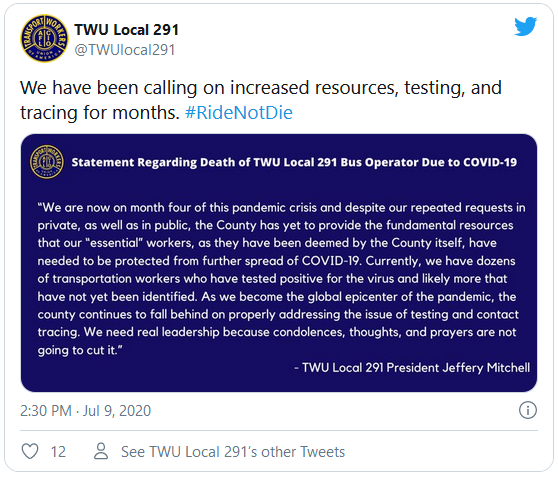
MIAMI-DADE COUNTY, Fla. – Lakeisha Snipes was so worried about being infected with the coronavirus that she decided to take a leave from her job as a public bus driver in March.
The mother of two told her employer she had underlying health conditions ― including high-blood pressure ― that put her at risk of dying of COVID-19. Snipes was safe at home until May when her employer asked her to return to work.
Kim Cox, her cousin, said Snipes told her “they bullied her into coming back to work.”
Snipes’ worst fear came true. According to Miami-Dade Transit, her last drive was on June 25 and she reported she had tested positive for COVID-19 on June 29. Snipes died on Wednesday. She was 42.
“It’s a tragedy for our family,” Cox said.
Cox said COVID-19 killed Snipes. It’s unclear how Snipes was infected. Miami-Dade County has had a shortage of contact tracers, the people who investigate outbreaks in the community.
Although she was taking an unprecedented risk, Snipes did not have first-responder discounts, hazard pay or a death benefit for her kids. Cox said Snipes told her she felt like Miami-Dade County leaders weren’t doing enough to protect her from COVID-19.
“She had been complaining for a long time ... that the bus system just doesn’t care about the employees,” Cox said.
There are about 430,000 transit workers around the country. They are keeping public transportation systems running, but their employers’ lack of investment in protections is causing them to pay the heavy price, according to The Transport Workers Union of America.
Miami-Dade County increased the regularity of cleanings and made boarding changes so passengers are further away from the driver. Officials also required passengers to wear face masks and started to provide drivers with face masks and hand sanitizer.
Cox said Snipes wasn’t appeased by the efforts. The TWU believes more needs to be done. Some drivers want Miami-Dade to install more clear shielding to help drivers isolate from passengers.
“She was very worried about COVID-19 ... From day one, everybody knows that if you have underlying conditions, you have weight problems, you stay out of harm’s way,” Cox said.
Luis Espinoza, a spokesman for the Department of Transportation and Public Works, told Local 10 News in a statement that Snipes “had leave time available as well as other options, such as Family Medical Leave Act (FMLA).”
“Our department continues to give consideration to the needs of our employees, especially those who may be at higher risk for severe illnesses,” he said.
African-American COVID-19 patients are dying at higher rates “in part because of black people’s heavier reliance on public transportation for commuting,” two new studies by economists suggest, according to The Wall Street Journal.
The NAACP has advocated for bus drivers around the country. In Miami-Dade County, more than 50% of transit workers are African American. Before the Black Lives Matter movement reignited, the union alleged in a federal civil rights lawsuit that Miami-Dade was discriminating against transit workers.
“The county’s firefighters, police officers and other frontline workers have earned and deserve the protections the Employer is giving them throughout the COVID-19 pandemic,” the complainant wrote. “The transit employee workgroup is deserving of the same protections.”
Jeffery Mitchell is the president of the TWU’s Local 291, which represents about 2,800 Miami-Dade County transportation employees. He filed another lawsuit earlier this year in Miami-Dade Circuit Court against Miami-Dade County Transportation & Public Works Director Alice Bravo.
Mitchell rented moving billboards to promote the TWU’s “Ride Not Die” campaign to raise awareness and pressure Bravo. He fears more transit workers will die and spread the disease as Miami-Dade’s cases continue to increase. On Thursday, he released a statement.
“Currently we have dozens of transportation workers who have tested positive for the virus and likely more that have not yet been identified,” Mitchell said.
Tips for transit workers
For transit station workers, potential sources of exposure include having close contact with a transit passenger with COVID-19, by touching surfaces contaminated with coronavirus, or by touching your mouth, nose, or eyes.
- Limit close contact with others by maintaining a distance of at least 6 feet, when possible.
- Avoid touching surfaces often touched by transit passengers.
- Practice routine cleaning and disinfection of frequently touched surfaces, following the directions on the cleaning product’s label.
- Use gloves if required to touch surfaces contaminated by body fluids.
- Proper hand hygiene is an important infection control measure. Wash your hands regularly with soap and water for at least 20 seconds. If soap and water are not readily available, use an alcohol-based hand sanitizer containing at least 60% alcohol.
- Key times to clean hands in general include:
- Before, during, and after preparing food
- Before eating food
- After using the toilet
- After blowing your nose, coughing, or sneezing
- Additional times to clean hands on the job include:
- Before and after work shifts
- Before and after work breaks
- After touching frequently touched surfaces
- After putting on, touching, or removing cloth face coverings
- Avoid touching your eyes, nose, or mouth.
PPP Support Letters to SF Congressional Members & Florida U.S. Senators
Debbie Murcarsel
Please note: This is a 2 page document.
Please See >>> at top right for options.
Marco Rubio
Please note: This is a 3 page document.
Please See >>> at top right for options.
Mario Diaz-Balart
Please note: This is a 2 page document.
Please See >>> at top right for options.
Donna Shalala
Please note: This is a 2 page document.
Please See >>> at top right for options.
Fredrecia Wilson
Please note: This is a 2 page document.
Please See >>> at top right for options.
Rick Scott
Please note: This is a 3 page document.
Please See >>> at top right for options.
Miami-Dade transit director is focus of union's #RideNotDie challenge
Miami-Dade transit director is focus of union's #RideNotDie challenge
4/25/20 Crisis Update with TWU President Samuelsen
4/25/20 Crisis Update with TWU President Samuelsen
TWU Ally Social Media Action Billboard
In lieu of a lack of response from Transit Director Alice Bravo to the needs of transportation workers during the COVID-19 crisis, we are asking her to come out and ride a few miles in our shoes.
On Tuesday, April 28, we will launch the Alice Bravo #RideNotDie Challenge, an initiative designed to raise awareness around the conditions and hazards that our drivers and passengers are facing every day on our public transit system.
We invite you to support our transportation workers and their right to life and safety on social media by coming out to Government Center on Tuesday, April 28 between 8:30 – 10:30 a.m. and 3 – 5:00 p.m.
To support:
- Go to Government Center on Tuesday, April 28 between 8:30 – 10:30 a.m. and 3 – 5:00 p.m.
- Take a picture with our #RideNotDie Challenge mobile billboard.
- Post on your favorite social media channel tagging @gomiamidade
- Use the #RideNotDie hashtag
Sample language for social:
#RideNotDie - Public transit workers & riders are essential to our community during #COVID19
and have a right to life and safety on the job. I challenge Alice Bravo @gomiamidade to ride M-
DC public transit under the same conditions drivers are currently working under.
Longshoremen’s union distributes protective equipment to members

Leaders of the Longshoremen (ILA) wasted little time jumping into action to secure personal protective equipment for their members, long before the COVID-19 outbreak had become a pandemic national crisis. While their effort was strong and tireless from the very start, the availability of personal protective equipment grew scarcer as the number of those affected by COVID-19 expanded.
“As soon as we ran into roadblocks with federal and state leadership, the ILA and New York Shipping Association took it upon ourselves to find PPE, and we worked around the clock to do so,” said ILA Executive Vice President Dennis Daggett. Last week, Daggett reported the ILA in New York and New Jersey secured 10,000 masks, distributed 50-gallon drum sanitizers to every terminal and outside depot, and gave out 7,000 pairs of safety gloves.
Workplace Leader Volume 1, Number 3 - for webinar viewers

Workplace Leader Volume 1, Number 3 - for webinar viewers
Issuu is a digital publishing platform that makes it simple to publish magazines, catalogs, newspapers, books, and more online. Easily share your publications and get them in front of Issuu’s millions of monthly readers. Title: Workplace Leader Volume 1, Number 3 - for webinar viewers, Author: Workplace Leader, Name: workplaceleader_v01n03_rev2__1_, Length: undefined pages, Page: 1, Published: 2020-04-14
https://issuu.com/workplaceleader/docs/workplaceleader_v01n03_rev2__1_?fr=sYThmMDc4Njk2NQ
Temperature Reading Process
SUBJECT: TEMPERATURE READING PROCESS
-------------------------------------------------------------------------------------
FFCRA_COVID-19_REQUEST_FORM_V.2pdf
Please note: This is a 1 page document.
Please See >>> at top right for options.
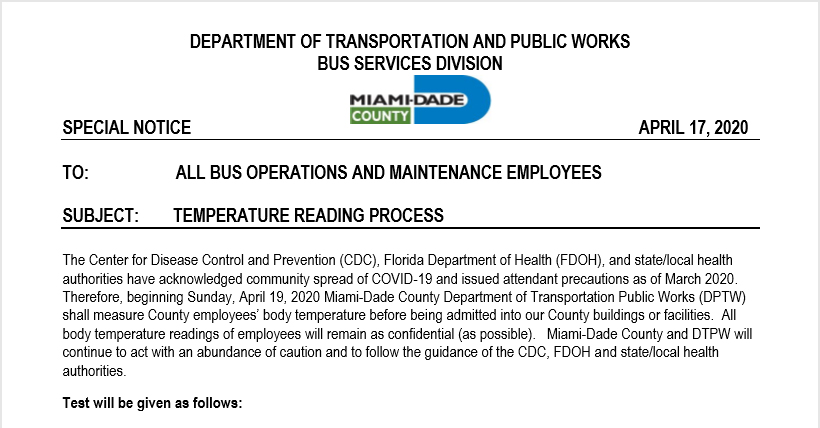
Transit union files lawsuit against Miami-Dade Transportation & Public Works director
Jeffery Mitchell - President TWU Local 291

Julia Bagg/NBCMiami.com
What to Know
- The lawsuit was filed Friday by the transit workers union representing nearly 3,000 employees
- Workers claim, among several items, that officials have not provided them with sufficient masks, gloves and other protective gear
- Union officials say they have been complaining for weeks about protocols from the Centers for Disease Control not being followed
Transit workers in Miami-Dade County have filed a lawsuit asking for immediate action to fix what they call “life-threatening” violations by the county’s public transportation system during the coronavirus pandemic.
The lawsuit, filed Friday by the transit workers union representing nearly 3,000 employees, asks for Transit Director Alice Bravo to make changes it says need to be in place to keep workers safe.
Workers claim, among several items, that officials have not provided them with sufficient masks, gloves and other protective gear. They say buses and rail cars are not properly sanitized and social distancing protocols are not being enforced.
“Bus operators and other transit employees are not receiving sufficient PPE, social distancing protocols are not being enforced, and some buses are dangerously overcrowded,” said union president Jeffery Mitchell in a statement. “We had no choice but to sue - lives are at risk.”
Union officials say they have been complaining for weeks about protocols from the Centers for Disease Control and Prevention not being followed.
“Our transit employees are dedicated public servants risking their lives on the front lines,” Mitchell said. “Our passengers are loyal and deserve the highest level of protection. “
FOR UP TO THE MINUTE INFORMATION ON THIS ISSUE SEE:
1250 WHNZ- iHeart:
- Facebook: https://www.facebook.com/whnzradio/posts/3121599647892800
ABC10 (Twitter and Facebook):
-Twitter: https://twitter.com/WPLGLocal10/status/1251160516296245250?s=20
- Facebook: https://www.facebook.com/67959238836/posts/10157157596058837/?d=n
NBC6 (Twitter and Facebook):
- Twitter: https://twitter.com/nbc6/status/1251141730063339521?s=20
- Facebook:
Interview with Jefferey Mitchell: https://www.facebook.com/88339957581/posts/10157440977707582/?d=n
Article post: https://www.facebook.com/NBC6SouthFlorida/posts/10157440488007582
Trina Robinson- NBC6 reporter (Twitter and Facebook):
- Twitter: https://twitter.com/TrinaNBC6/status/1251149232574050304
- Facebook: https://www.facebook.com/1437031056626582/posts/2599464460383230/?d=n
Miami Herald:
- Twitter: https://twitter.com/MiamiHerald/status/1251107363853144064?s=20
- Facebook: https://www.facebook.com/38925837299/posts/10158284277652300/?d=n
David Smiley- Miami Herald reporter: https://twitter.com/NewsbySmiley/status/1251141324784336897
Helene O’Brien- Florida director 32BJ SEIU: https://twitter.com/helene3620/status/1251117197444952065
Raquel Regalado- Caracol: https://twitter.com/RaquelRegalado/status/1251171409205833735
Alex Penelas – Candidate for M-DC Mayor: https://twitter.com/apenelas/status/1251127152373837828
Doug Hanks- Miami Herald reporter: https://twitter.com/doug_hanks/status/1251161729708392453
Steve Litz- NBC6 reporter (Facebook): https://www.facebook.com/264230693617945/videos/221305842295165/
Miami Dade Transit Employees Group:
- Facebook: https://www.facebook.com/groups/49716633084/permalink/10157131606398085/
Watch: President Samuelsen Defends Members on Frontlines of COVID-19 Fight

TWU International President John Samuelsen talks to The Hill TV about TWU members fighting on the frontlines of the COVID-19 pandemic, the need for greater PPE, better social distancing and a national health and safety standard to protect workers.
FFCRA COVID-19 REQUEST FORM April 16, 2020
Human Resources Department
Request For COVID-19 Leave
To request emergency paid sick leave as provided under the Families First Coronavirus Response Act (FFCRA) please complete this form and submit it to your Department Personnel Representative as soon as possible.
You may take up to 80 hours of paid sick leave (Time Reporting Code (TRC) VS/VF) for any combination of qualifying reasons 1, 2, 3, 4 and 6.
FFCRA_COVID-19_REQUEST_FORM_V.2pdf
Please note: This is a 1 page document.
Please See >>> at top right for options.
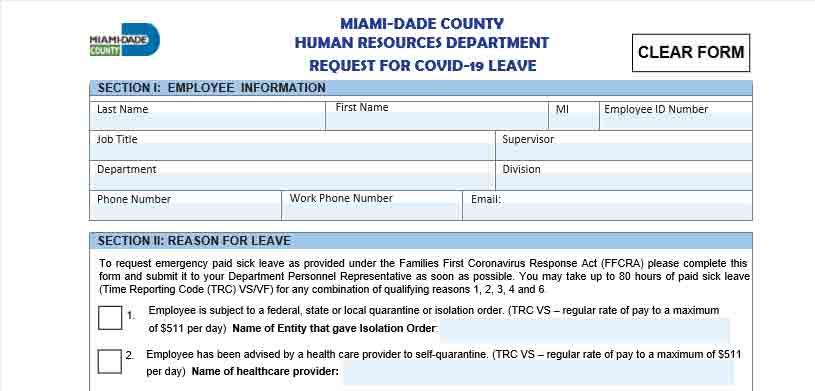
COVID-19 Legal Update Employee Safety April 13, 2020
Many employees are concerned about their specific health concerns in the midst of this pandemic. Employee safety must come first. The CDC has identified certain categories of individuals who may be at a higher risk of severe complications if they develop COVID-19. This information is available at: https://www.cdc.gov/coronavirus/2019-ncov/need-extra-precautions/people-at-higherrisk.html. Local, state, or federal quarantine or stay-at-home orders may also identify such groups.
High-risk employees may wish to request reasonable accommodations from their employers. For example, according to the EEOC, “employees with disabilities that put them at high risk for complications of pandemic influenza may request telework as a reasonable accommodation to reduce their chances of infection during a pandemic.” See Question 10 at: https://www.eeoc.gov/facts/pandemic_flu.html.
COVID-19 Legal Update Employee Safety April 13, 2020
Please note: This is a 4 page document.
Please See >>> at top right for options.
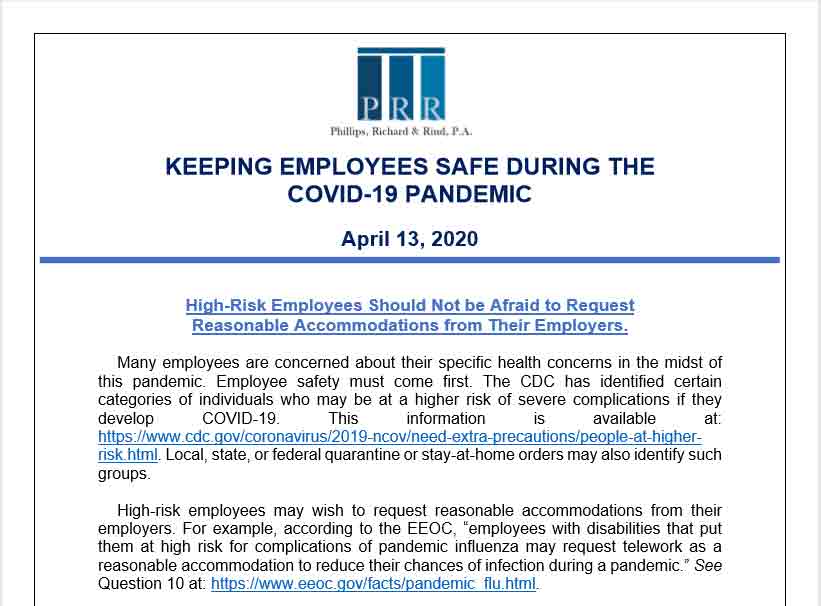
Payroll Tax Relief in the CARES Act for AFL-CIO Central Labor Bodies - 04/08/2020
Organizations that are not labor organizations or central labor bodies should NOT refer to this memo for information about CARES Act relief.
Memo re Payroll Tax Relief in the CARES Act for AFL-CIO Central Labor Bodies - April 8 2020
Please note: This is a 4 page document.
Please See >>> at top right for options.
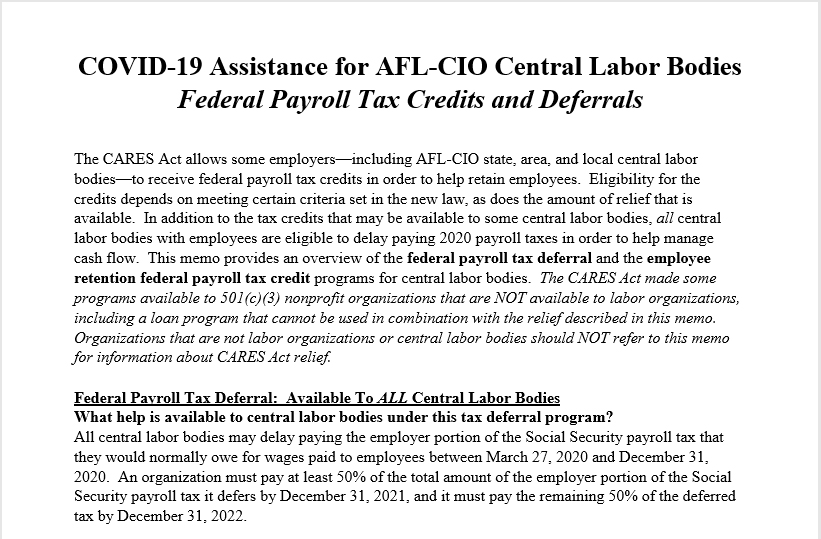
Key Federal and Private Relief Programs for AFL-CIO Central Labor Bodies - April 8 2020
Federal payroll tax credit to incentivize keeping employees during COVID-19-related
hardships Credit amount is 50% of qualified wages, up to $5,000 per eligible employee
Key Federal and Private Relief Programs for AFL-CIO Central Labor Bodies - April 8 2020
Please note: This is a 5 page document.
Please See >>> at top right for options.
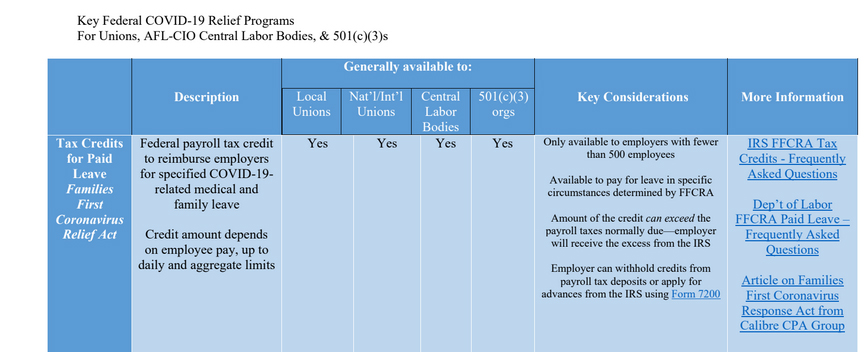
EMPLOYEE RIGHTS UNDER THE ADA DURING COVID-19 PANDEMIC - April 6, 2020
COVID-19 ADA Legal Update - April 6
Please note: This is a 2 page document.
Please See >>> at top right for options.
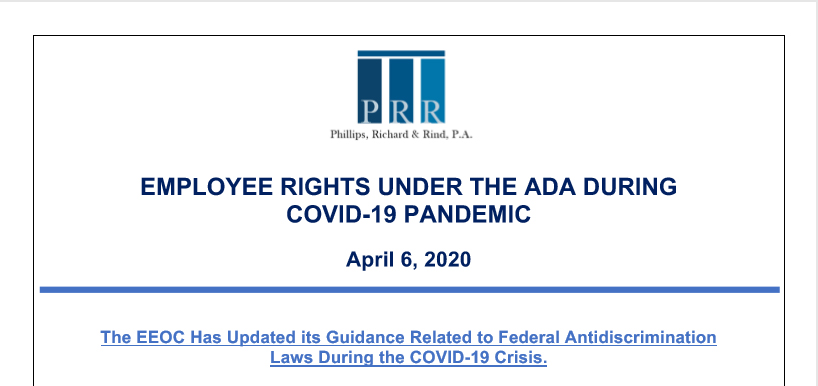
Three Miami-Dade transit workers test positive for COVID19; union wants gear

Two Miami-Dade bus drivers and an employee from the radio room have tested positive for coronavirus in recent days, their union leader said, as transit workers — who are also on the front lines — continue to work without protective gear.
And the southbound Route 9 bus in Aventura had 60 passengers on board Friday morning. Maybe they should call it Route 19. As in COVID19.
“To have 60 people on the bus is just not healthy,” said Jeffrey Mitchell, president of the local Transport Workers Union 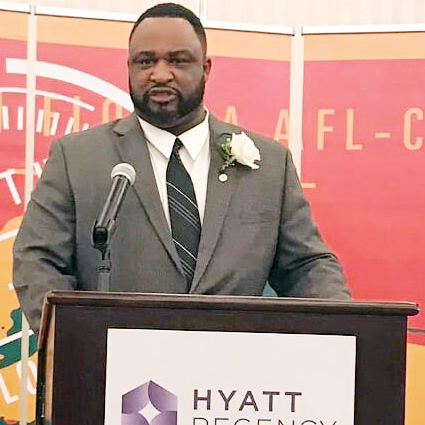 chapter, who has been making spot checks on the busiest routes.
chapter, who has been making spot checks on the busiest routes.
Mitchell said the new guidelines are to have a maximum of 25 passengers. Wait, 25? Two dozen plus one, plus a driver? So 26 people in one 40-foot petri dish. Oh, that’s right! Because Mayor Carlos Gimenez banned congregations of more than 10 people except on buses or trains, which are obviously magical COVID-free zones. If anyone wants to have a party, catch a bus.
Even so, when drivers radio for a replacement bus because there are 25 people on board, the answer is usually there is no replacement bus coming, Mitchell told Ladra. “And we ain’t in the business of leaving people stranded.”
He has identified 10 very busy routes where cuts in service have forced buses to travel with more passengers. “We need more buses on those heavy routes because they’re being swamped,” Mitchell said. Even though passengers are asked to board through the rear door to protect the driver — and/or themselves from the driver — it is impossible to keep social distance guidelines when there are 25 people in a 40-foot bus.
The county is “still ordering” the personal protection items they need — gloves, masks, hand sanitizer, Mitchell said. “They’re scrambling. They’re trying to get it now. But it’s a little late.
Read related: Stay home for COVID19 — unless you catch a bus, grab a bite, need toilet paper
“Lots of people still don’t have any masks, unless they bring it from home, and those are usually not the right kind,” Mitchell said.
“They’re giving our operators one pair of gloves, one sanitary wipe per shift and they fill the little, personal bottle of sanitizer once a week,” Mitchell said. “They usually don’t last a week.”
It’s gotten so bad that the union has ordered 10,000 masks and gloves on its own. “We just went out and bought it ourselves 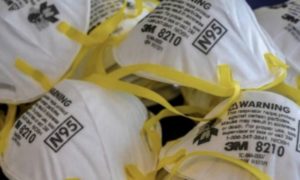 because we can’t keep waiting,” Mitchell said.
because we can’t keep waiting,” Mitchell said.
The two largest transit unions in the U.S., representing 330,000 transit workers nationwide, got together Friday to demand that government transit agencies in Miami, New York City, Washington, D.C., Chicago, Boston, Philadelphia, San Francisco, Atlanta, Houston, Dallas, Detroit and Colombus, Ohio, provide more sanitation and protective gear to members who may be exposed to coronavirus every day they go to work.
“We are not cannon fodder. Dying is no way to make a living,” reads the headline of a press release from the Transport Workers Union of America (TWU) and the Amalgamated Transit Union (ATU) where they vowed to take “aggressive action” if operators don’t better protect their workers from COVID19.
This “historic agreement to work collectively to put maximum pressure on transit agencies that are failing to take protective measures to safeguard” is on behalf of bus operators, train operators, conductors, track workers, car cleaners, mechanics, and other frontline transit workers.
Read related: Day 5 of COVID19 in Miami-Dade — more closures, masks and tests coming
Hundreds of transit workers in more than 20 states have already tested positive for COVID19. More are certainly going to be. New York City, where 10 transit workers 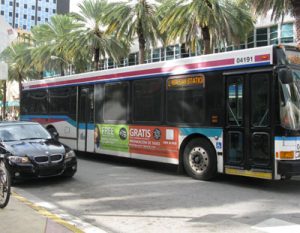 have died, may be the national epicenter of the pandemic today, but the virus continues to spread across the country and Miami-Dade is expected to “peak” in three to five weeks. Coronavirus fatalities among transit workers have also been confirmed in Detroit, New Orleans, Philadelphia, Boston, Washington, D.C., Rocky Hill, Connecticut and Everett, Washington.
have died, may be the national epicenter of the pandemic today, but the virus continues to spread across the country and Miami-Dade is expected to “peak” in three to five weeks. Coronavirus fatalities among transit workers have also been confirmed in Detroit, New Orleans, Philadelphia, Boston, Washington, D.C., Rocky Hill, Connecticut and Everett, Washington.
Miami-Dade County and other agencies nationwide haven’t shut down transit because it is a needed pipeline that delivers essential workers — first responders, healthcare workers, food industry employees — to work. But they are also putting these same essential workers — which include the bus and train operators — at risk.
“America cannot properly fight COVID-19 without transit workers. The government must ensure they are properly protected,” the unions’ joint statement read.
“If transit agencies don’t take immediate and dramatic steps to protect our members, there will be serious consequences,” TWU International President John Samuelson said. “We will not sit back and let transit workers be treated like cannon fodder in this war against the coronavirus. We can—and will—take aggressive action.”
The demands are that transit agencies:
- Provide gloves and masks to transit workers
- Regularly disinfect buses, trains, streetcars, and worker facilities, including crew rooms
- Enforce rear-door boarding to maintain a safe distance between riders and bus operators
- Suspend use of any timekeeping systems that require multiple workers to touch the same digital screen, keyboard, or fingerprint-scanning device
- Begin systematically cleaning and sanitizing equipment and facilities
- Urge riders to cover their faces with a bandana or scarf if they are not wearing masks while riding mass transit
- Mandate social distancing among transit riders using their systems, as well as workers in crew rooms and other facilities
- Provide in the line of duty death benefits for employees
- Agree to ‘pandemic leave’ policies that ensure no one potentially exposed to COVID is compelled to go to work to keep their job.
“Too many transit agencies are not providing personal protective equipment for their employees, endangering the lives of our  members and the families they go home to, Amalgamated Transit Union International President John Costa said in the statement.
members and the families they go home to, Amalgamated Transit Union International President John Costa said in the statement.
“It is beyond shameful that those tasked with overseeing these agencies during this crisis have allowed us to arrive at this juncture! We are prepared to take whatever aggressive action is necessary in order to protect our members and their families,” Costa said.
Read related: Miami-Dade COVID19 focus stays on seniors as data shows younger at risk
“Nothing is off the table. Dying is no way to make a living.”
The strong wording in the language used by he international labor leaders sounds like a strike is looming, and isn’t that what always happens in the apocalyptic movies? The transit and sanitation workers strike first?
But Mitchell said that Miami-Dade transit employees consider themselves essential workers because they serve a critical need that could become even more vital in a time like this. Already, nurses at Jackson Memorial Hospital have complained about the reduced hours on MetroRail because they can’t get home after their night shifts, Mitchell said.
“It isn’t our plan to strike,” Mitchell said, “but to bring public awareness to the fact that they aren’t giving us the proper equipment.”
Until they do, Gimenez and his staff and Transit and Public Works Director Alice Bravo should ride Route 9 every morning.
Corona USDOT Announces $25 Billion Funding Allocation

The CARES Act and Florida
Congress recently approved the CARES Act, a third bipartisan stimulus bill to counter the coronavirus (COVID-19) pandemic. We worked around the clock to reach a deal that puts people first and provides needed relief for families, workers, and businesses of all sizes. Congresswoman Shalala is grateful for the input from the many South Floridians who have written and called her office to share their thoughts. This $2 trillion package will ultimately help keep our nation from falling into a deep recession due to COVID-19.
Below please find highlights from this package that will go a long way towards ensuring we all have the resources we need to stay safe and support our families and communities.

- Direct Payments to Americans
This bill includes direct cash payments to Americans of up to $1,200 per adult and $500 per child. The full payment is available for individuals making up to $75,000 and couples up to $150,000 per year. Therefore, a family of four could get as much as $3,400. The IRS will make these payments in the coming weeks based on either a tax filer’s 2019 return or 2018 return. People who do not file a tax return will still be eligible for these payments, and the IRS will work with other agencies to coordinate how to make the payment.
Learn more about direct payment provisions in the CARES Act here.
Unemployment Insurance
This bill expands the Unemployment Insurance program and increases the maximum unemployment benefit by $600 per week for four months. This will allow workers, on average, to receive their full pay for four months. It also ensures laid-off workers are protected, no matter the size of the business that employs them and includes those who are self-employed and gig economy workers. Finally, it allows furloughed workers to stay on as employees and simultaneously receive Unemployment Insurance so that they can return to their jobs when this crisis ends.
Learn more about Unemployment Insurance provisions in the CARES Act here.
- Resources and Protections for Health Care and Front-Line Workers
This bill includes over $150 billion in funding for our health care system. This funding will support critical investments in testing, health care supplies, workforce and training, new facility construction, expanded research into COVID-19, and telehealth technology for health care delivery. This bill establishes free COVID-19 testing and full coverage of any recommended COVID-19 vaccine. Critically, this bill helps safeguard health care workers and first responders by ramping up production of personal protective equipment. These workers are on the front line of this crisis, and our collective public health depends on their ability to do their jobs safely.
Learn more about health care provisions in the CARES Act here.
- Relief for Small Businesses
This bill provides extensive relief for small businesses, including $10 billion for the Small Business Administration (SBA) to provide emergency grants of up to $10,000, as well as $17 billion for the SBA to cover six months of payments for businesses with existing SBA loans. There is also $350 billion in loan forgiveness grants to small businesses and non-profits to allow them to maintain existing workforce and pay for other expenses like rent, mortgage, and utilities. The Paycheck Protection Program (PPP) in the bill will provide small businesses and other entities with zero-fee loans of up to $10 million. Up to eight weeks of average payroll and other costs will be forgiven if the business retains its employees and their salary levels. Principal and interest are deferred for up to a year, and all borrower fees are waived.
Learn more about Small Business provisions in the CARES Act here and here
- Coronavirus Relief Fund
This bill provides $150 billion for the newly-established Coronavirus Relief Fund, which state, tribal, and local governments can use this year to meet costs connected to the virus. It is estimated that Florida will receive approximately $ 8.33 billion.
- Corporate Transparency and Accountability Provisions
The bill provides funding to help industries that have been hit hard by the coronavirus pandemic but puts protections in place for the American taxpayer. Companies that utilize government assistance are banned from doing stock buybacks for the term of the loan plus one year. The bill also creates real-time public reporting of loan terms, investments, and other assistance to corporations and creates a Special Inspector General for Pandemic Recovery and a Pandemic Response Accountability Committee to oversee the use of taxpayer dollars.
- Higher Education
This bill provides $30 billion in overall emergency education funding. Florida’s state universities will gain nearly $249 million to offset lost revenue, fund new technology and help students with housing, food and other emergency needs. The agreement defers student loan payments, principal, and interest until October 1 without penalty for all federally owned loans. It includes protections for students who were forced to drop out of college as a result of coronavirus, ensuring that these students will not be barred from receiving lifetime subsidized loans and will still be eligible for Pell grants. It allows institutions to offer students additional aid, expands the use of federal grants like TRIO and GEARUP, and provides Peace Corps and other National Service Corps volunteers with their full educational award prior to the suspension of their overseas assignments. The bill also creates a new program allowing employers to pay off up to $5,250 per year of an employee’s student loan debt without employees having to pay tax on that benefit.
- K-12 Education
The bill provides Title I schools with $3 billion in flexible funding to allow governors to address the needs of their elementary and secondary schools. This funding is essential for carrying out emergency educational services to students, such as childcare and early childhood education and social and emotional support. Low income students that attend private school in any school district will equally qualify for aid.
Learn more about higher education and K-12 education provisions in the CARES Act here.
- Food Assistance
The bill increases funding for food stamps or the Supplemental Nutrition Assistance Program by $15.5 billion and makes it easier for children, seniors, and individuals with disabilities who already receive SNAP to get their food and other related benefits. $100 million would be given to food distribution programs on Indian reservations. And another $200 million would go to the Mariana Islands and Puerto Rico.
- Housing Assistance
This bill provides over $12 billion for affordable housing, rental support and homelessness assistance programs. It places a temporary moratorium on evictions and foreclosures for homeowners and renters living in federally subsidized apartments and homes with federally backed mortgages. This funding will help low-income and working-class Americans who are facing loss of employment, childcare, or other complications relating to the coronavirus pandemic. It also provides additional housing assistance for especially vulnerable groups, such as older adults, people with disabilities and people with AIDS.
Additionally, the bill includes $900 million for the Low Income Home Energy Assistance Program (LIHEAP), which helps assist families with energy costs. Florida is estimated to receive approximately $54 million in LIHEAP funds.
- Easing of Retirement Rules
This bill waives the additional 10 percent tax on early distributions from retirement accounts for people who have been economically harmed by coronavirus. It also waives required minimum distributions in 2020 from defined contribution plans (such as 401(k) plans) and IRAs. The waiver includes required minimum distributions that are due by April 1, 2020 because the account owner turned 70 ½ in 2019.
- Election Assistance
This bill includes $400 million to help states prepare for complications in upcoming elections as a result of COVID-19. This funding will help states expand vote-by-mail programs, early voting, and online registration. It will also allow states to increase the safety of in-person voting by creating additional voting facilities and adding more poll-workers. The State of Florida is estimated to receive approximately $21 million, which includes the state’s 5% match of approximately $1 million.
- Community Development Block Grants
This bill includes $5 billion in Community Development Block Grants for coronavirus response and to mitigate the impacts in our communities. The legislation also waives the public services cap to allow communities to respond to the impacts of the pandemic by providing an increased share of funding for health services, education programs, crime prevention and public safety, and services for the homeless and seniors.
Grantees are states and units of local government, awarded via formula. Preliminary allocations are estimated to be: Miami-Dade County: $6.6 million; Miami: $3.3 million; Miami Beach: $560,000. $2 billion will be allocated on a rolling basis based on needs and COVID-19 impact (i.e. “hotspots”).
- Child Care and Development Block Grant
This bill supports child care and early education by providing $3.5 billion for the Child Care and Development Block Grant. Florida will receive $222 million under this emergency appropriation.
- Public Health Emergency Preparedness Program
The bill provides about $750 million in CDC State, Local, and Tribal Grants Minimum Awards to help agencies cope with the public health emergency. The minimum award for Florida is $30 million. In addition, states can apply for additional funds above their minimum award, based on their needs.
- Law Enforcement (Byrne-Justice Assistance Grant Program)
The bill provides $850 million for the Byrne-Justice Assistance Grant Program, giving additional support to state and local law enforcement agencies, thereby allowing them, for example, to obtain the personal protective equipment and other medical items they may need during this public health emergency. Florida will receive approximately $ 52 million under this appropriation.
- Transit Agencies
The bill $25 billion to transit agencies, which have all seen a drastic drop in revenues as social distancing has been implemented. This funding is to be used to protect the jobs of the employees of the transit agencies, funding their paychecks during this public health emergency. Florida will receive approximately $969 million under this program.
Arts and Humanities
So many of our South Florida cultural institutions are suffering. This bill provides Florida with $910,000 in grants through the National Endowment of the Humanities and $606,000 for the grants through the National Endowment of the Arts.
This is a package for the people. If you need assistance throughout this crisis, do not hesitate to reach out to Congresswoman Shalala’s district office at (305) 668-2285. Her website is updated daily with resources for you during this challenging time: shalala.house.gov.
Families First Corona Response Act
►PAID LEAVE ENTITLEMENTS
Generally, employers covered under the Act must provide employees: Up to two weeks (80 hours, or a part-time employee’s two-week equivalent) of paid sick leave based on the higher of their regular rate of pay, or the applicable state or Federal minimum wage, paid at:
• 100% for qualifying reasons #1-3 below, up to $511 daily and $5,110 total;
• 2/3 for qualifying reasons #4 and 6 below, up to $200 daily and $2,000 total; and
• Up to 12 weeks of paid sick leave and expanded family and medical leave paid at 2/3 for qualifying reason #5 below for up to $200 daily and $12,000 total.
A part-time employee is eligible for leave for the number of hours that the employee is normally scheduled to work over that period.
Families First Corona Response Act Poster
Please note: This is a 1 page document.
Please See >>> at top right for options.
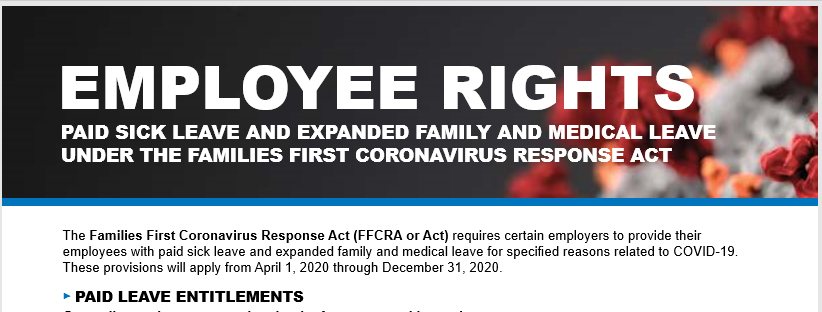
Miami-Dade Transit Union Worries About Coronavirus Threat - 03/27/2020
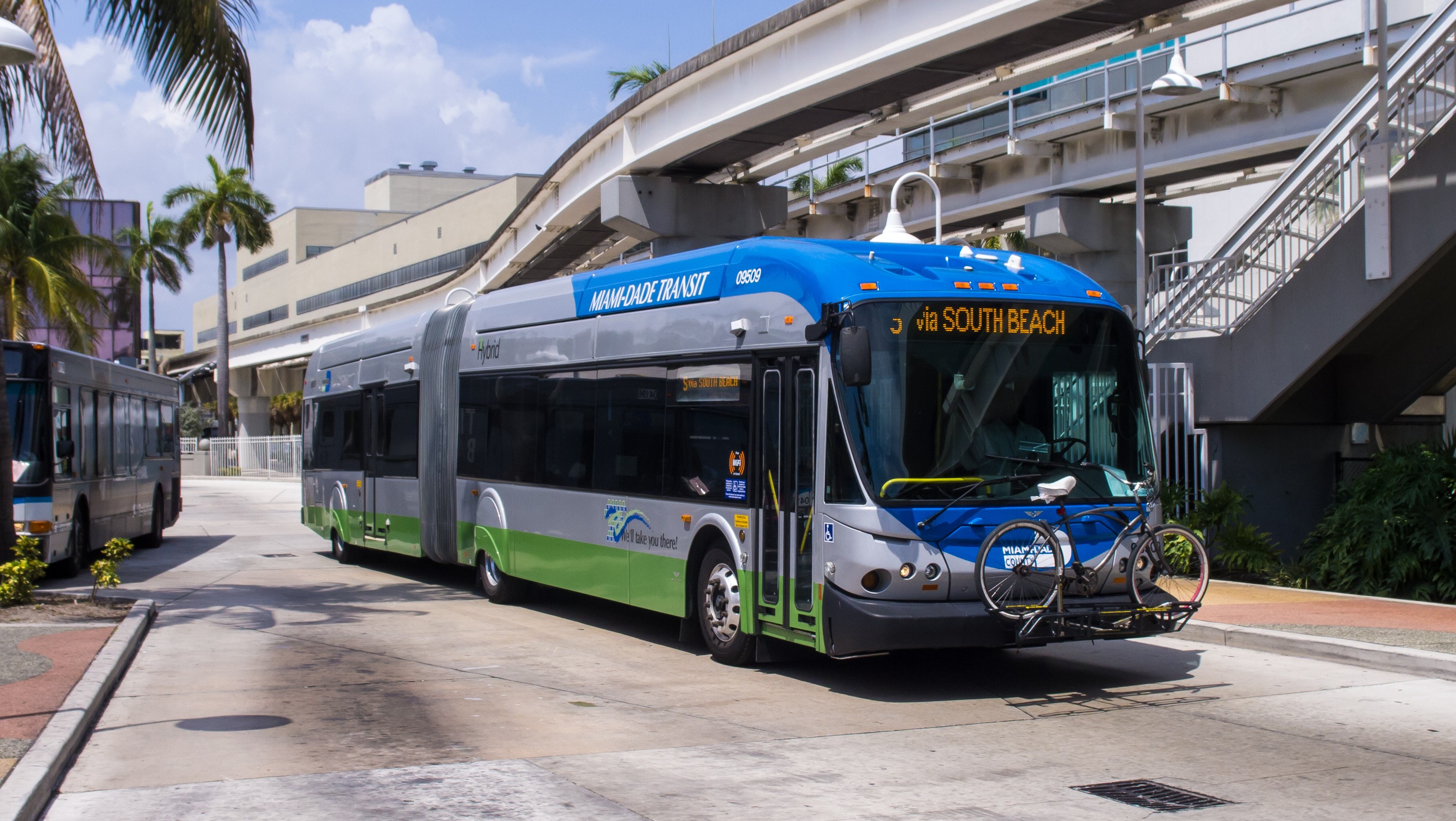 Luis relies heavily on Miami-Dade's public transit system.
Luis relies heavily on Miami-Dade's public transit system."I can't really live without it," says Luis, who asked New Times to use a pseudonym because he is undocumented.
Every day, the disabled 59-year-old takes the bus and Metrorail from where he sleeps in South Miami-Dade to soup kitchens and clinics in downtown Miami, where he gets hot meals and medical care. He suffers from postpolio syndrome — a condition marked by muscle weakness, atrophy, and fatigue — brought on by polio diagnosed when he was a boy in Colombia.
During normal times, Luis also likes to ride the bus to a different library each day. Before the library system closed indefinitely, it was a lifeline for him — he'd read the news, watch movies, and charge his phone.
The coronavirus pandemic has disrupted almost everything routine and familiar. Luis says it's a small comfort that he can still catch a bus and reach necessary services. Despite ridership dropping on buses, the Metromover, and Metrorail, the transit system can present a weak point in the fight against coronavirus.
Miami-Dade Transit is still running, albeit with some limitations. The system continues to transport low-income residents, essential employees who can't work from home, and people without driver's licenses, car insurance, or a vehicle. Public transit already caters to some of the community's most vulnerable — people who could be at greater risk of exposure to coronavirus.
Yesterday afternoon, Luis says he waited an hour for a bus to take him south from downtown Miami.
"It was pretty packed," he says. "It was worrisome."
Jeffery Mitchell, president of the Transit Workers Union, Local 291 — the union that represents about 2,800 transit workers in Miami-Dade — says more needs to be done to protect passengers and transit employees.
"We've got a lot of concerns about driver safety and passenger safety," Mitchell says. "And the operators are extremely nervous because they've been in contact with hundreds, if not thousands, of people on a daily basis. Our employees right now are working in fear."
Buses and trains are being disinfected; flat surfaces on buses are wiped down overnight and sprayed with Lysol during the day. Alice Bravo, the county's transportation and public works director, says buses are being cleaned more frequently. But cleaning supplies and hand sanitizer for riders is in short supply. Mitchell says the current level of cleaning is insufficient.
"Cleaning at night, we've been doing that for 30-some years," he says. "Do you know how quick this can spread if some passengers have that virus, don't know it, and ride public transit? We can take this thing around the whole county. This is what we want to get ahead of."
Despite decreased ridership, the Miami Herald reported last week that more than 150,000 people were using public transit amid the crisis.
Mitchell sent a letter to Bravo, county commissioners, and County Mayor Carlos Gimenez urging action. The letter claims at least two bus drivers have been quarantined at local hospitals recently because of exposure to coronavirus. Mitchell says bus drivers are among the transit employees with the highest risk of exposure.
"They have direct contact with people, sometimes face to face," Mitchell says. "[Passengers] come and ask questions about how to get [to places]. These days, it's a hazardous position to be in."
The Herald reported last week that a bus driver was under isolation at home for possible exposure and was awaiting test results. Bravo, the transportation director, told New Times yesterday that some transit staff were sent home sick and tested for COVID-19, but the results are pending.
"So far we have been lucky," Bravo says. "As far as we know, nothing has come back positive."
In New York City, a subway conductor and a bus driver have already died of COVID-19, according to media reports.
Mitchell says more aggressive sanitation efforts are needed. He says the transportation department is in the process of buying equipment that can clean the inside of buses and trains with sanitizing vapor.
He also suggests adding buses to some of the busier routes to help thin out crowds and limit passenger interaction.
The county has taken some recent measures to limit interaction between passengers and transit employees, such as suspending transit fares, asking riders to board buses through the rear door, and urging people to limit transit use to essential trips.
"We're telling people to restrict travel [on] cruise ships and airlines," Mitchell says. "It's no different than people on a bus. That's a petri dish."
A transit employee, who asked to remain anonymous over fear of losing his job, says he wishes the county would shut down the transportation system. He has an elderly mother he looks after and worries about exposing her to the virus because of his job. He says coworkers have called in sick because they feel unwell or are afraid of exposure. The hubs where transit employees report to work and receive their daily assignments can be filled with dozens of people at a time and also present a danger, the employee says.
"Kids are home from school, and lots of parents have to stay with the kids," the employee says. "The only thing I wish is that we shut down the system until they get a handle on this and not risk the employees. Transit is essential during a normal working period. Lots of people aren't going to work."
Mitchell, the union president, says that can't happen yet. People still need to get to work, find social services, and make trips to the grocery store and pharmacy.
Azhar Chougle, executive director of Transit Alliance Miami, says a transit shutdown is complicated.
"If we shut down the transit system, we have to shut down all mobility," he says. "Ridesharing, bikes, cars, everything. All movement beyond essential movement would need to be locked down. You can't disproportionately impact people without cars and people who might already be on the edge of their livelihoods."
Chougle says leaders also need to discuss the long-term viability of public transit. On a regular day in Miami-Dade, one of the state's most expensive counties to live in, people might need to choose between paying rent, loans, utility bills, for groceries, or a car payment. The economic crisis will force people to make tougher financial decisions. Public transit might become critical to more people on the rebound from the pandemic.
"Transit is losing a lot of money, and now the federal government is considering a bill to support transit agencies," Chougle says. "Our economy is suffering, and coming out of this, more people will depend on public transit than ever before. There's a need for transit to come back stronger than ever."
COVID-19 Update 03272020
COVID-19 Update 03272020
Please note: This is a 2 page document.
Please See >>> at top right for options.

South Florida AFL-CIO COVID-19 Resource Guide
South Florida AFL-CIO COVID-19 Resource Guide
Please note: This is a 27 page document.
Please See >>> at top right for options.
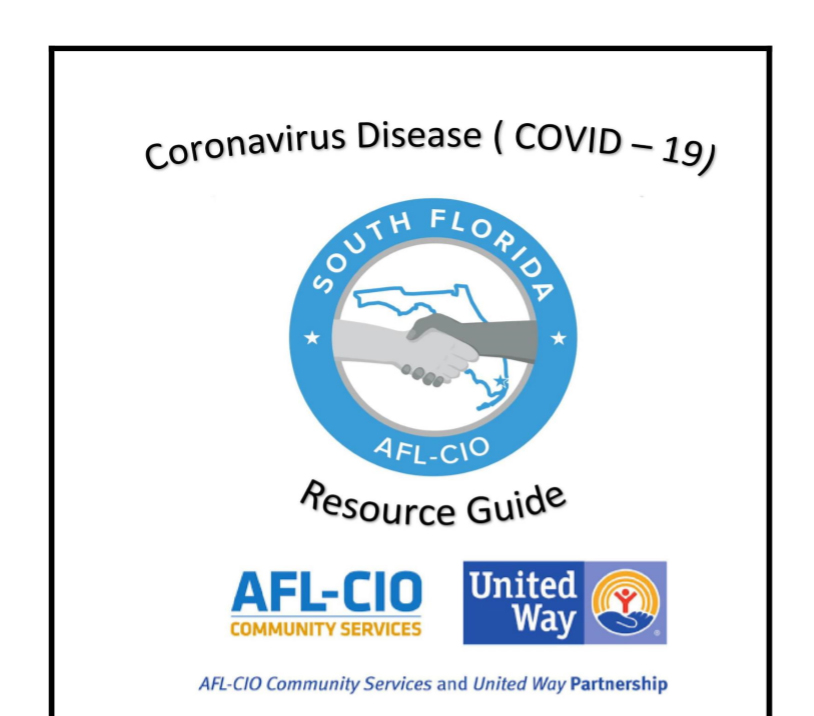
Union Rights and Strategies During the Coronavirus
Union Rights and Strategies During the Coronavirus
Please note: This is a 3 page document.
Please See >>> at top right for options.

Layoffs/Furloughs Due to COVID-19 | 03-24-2020

When The Paycheck Stops
When The Paycheck Stops
Please note: This is a 6 page document.
Please See >>> at top right for options.
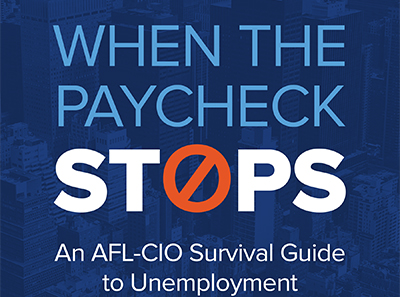
Union Plus COVID-19 Updates
When The Paycheck Stops
Please note: This is a 3 page document.
Please See >>> at top right for options.
